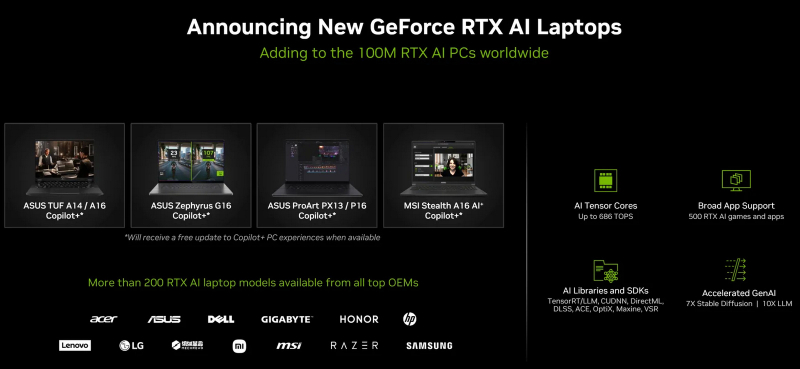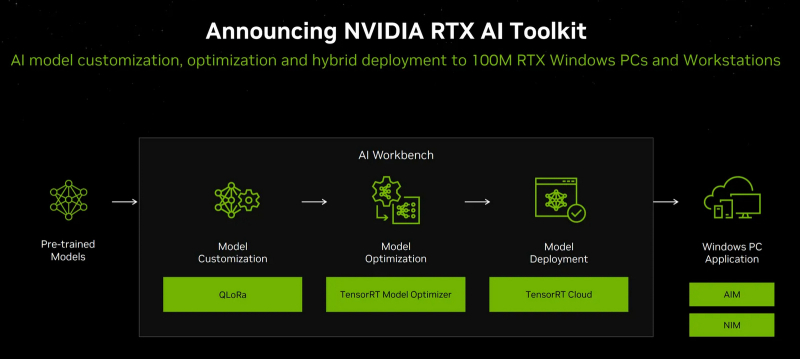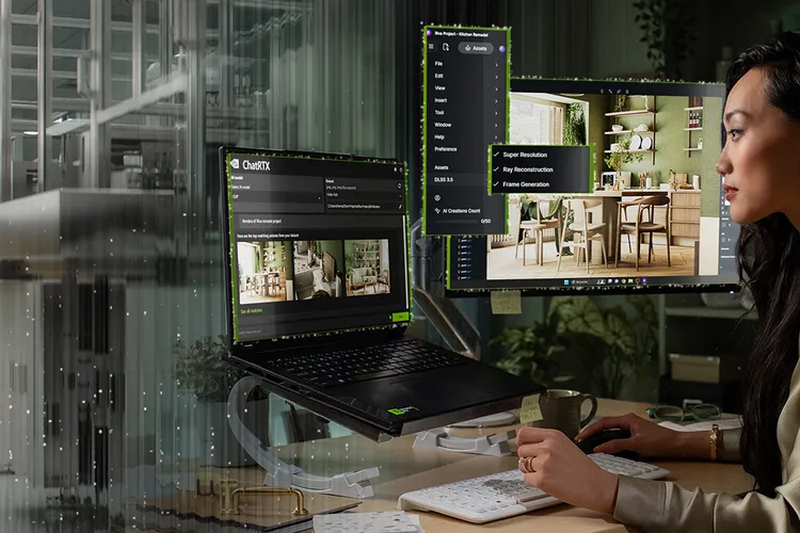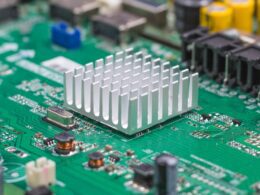At today’s Computex 2024 exhibit, Nvidia announced upcoming releases of new RTX AI PC laptops from Asus and MSI, meeting the requirements of the Copilot Plus PC class. Microsoft introduced this new tier of computers in May, defined by their enhanced ability to locally run artificial intelligence (AI) applications.
“The new RTX AI PC laptops from Asus and MSI will be equipped with GeForce RTX 4070 graphic accelerators and energy-efficient system-on-chips with Windows 11 AI PC capabilities,” Nvidia reported on its blog. The company clarified to The Verge that these laptops will be built on the latest AMD Strix Point processors.
These processors haven’t been officially launched by AMD yet, but they’re expected to be announced at the upcoming Computex 2024 company presentation today, at 4:30 AM Moscow time.

Nvidia implied that the first AMD-based Copilot Plus PC systems might initially lack some of Microsoft’s AI features. Nvidia’s blog revealed that these AI PCs running on Windows 11 will receive a free upgrade to Copilot+ PC when it becomes available. This could suggest that either Microsoft isn’t quite ready to launch Recall and other AI functions on AMD chips, or there might be an exclusivity period for these features with Qualcomm Arm-processor computers, which go on sale from June 18.
A separate battle is being waged by Nvidia to maintain its relevance in the AI laptop market. While Microsoft is transferring AI algorithm work to Neural Processing Units (NPU) embedded in the CPU, Nvidia plans to make its GPUs vital for AI on PCs. Nvidia is forcefully promoting its RTX AI laptops, asserting that its GPUs can handle more substantial AI workloads than NPUs.
In June, Nvidia will release the RTX AI Toolkit, comprising tools and SDKs for the tuning, optimization, and deployment of AI models. This will allow developers to take large language models like Meta’s Llama 2 and optimize it to run with significantly lower GPU performance and video memory requirements.

Nvidia is cooperating with Microsoft in developing base AI models embedded in Windows 11. Nvidia stated that this “collaboration will provide application developers with a handy Application Programming Interface (API) to access GPU-accelerated Small Language Models (SLMs) providing Recall Augmented Generation (RAG) that operate on Windows Copilot Runtime-run devices.”
Microsoft announced Windows Copilot Runtime at the Build conference last month. Nvidia has stated its AI model-accelerating solution using GeForce RTX video cards will be launched in a developer preview version later this year. Microsoft’s Windows Copilot Runtime aims to facilitate developers in adding AI-based features to applications, using NPU or GPU to speed up these functions.
Currently, NPU performance is about 40 TOPS (trillion operations per second), while Nvidia’s PC GPUs can provide over 1000 TOPS. NPUs are suited for small, energy-efficient models in lightweight laptops, while GPUs perform excellently with larger, high-performance models in gaming laptops and desktop PCs.





